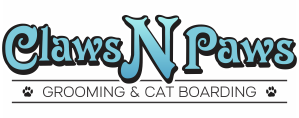 With COVID-19 at the center of the news, we truly are living in a historically significant time. Amid these extraordinary circumstances, we may find ourselves overwhelmed with conflicting information. You may be wondering how exactly your pet functions into the COVID-19 situation.
With COVID-19 at the center of the news, we truly are living in a historically significant time. Amid these extraordinary circumstances, we may find ourselves overwhelmed with conflicting information. You may be wondering how exactly your pet functions into the COVID-19 situation.
Can My Pet Transmit COVID-19?
In the general panic associated with this pandemic, several news sources have spread unnecessary fear regarding people’s pets. They refer to a case in Hong Kong, where a 17-year-old Pomeranian tested “weak positive” for COVID-19. However, after conducting thousands of tests on both cats and dogs, IDEXX Laboratories found no more positive cases. Currently, the World Health Organization (WHO) contends that there is no evidence to suggest pets or livestock can transmit the virus.
As a result of these sensationalized news stories, people are concerned that their pet may give them or others COVID-19. Shelters around the world have reported a massive uptake in abandoned pets. Rest assured, you should not abandon your pet. In fact, their support can help you greatly during social distancing.
Social Distancing with Your Pet
Social distancing is the practice of staying away from people in order to slow the spread of infectious disease. During social distancing, it can be easy to feel bored or unmotivated. Having a pet is a great remedy for this! Pets provide routine and responsibility to our lives. They provide low-pressure companionship that can help through particularly difficult situations. During a social quarantine, a pet is a nice reminder that we are never truly alone.
If you have a dog, you can still take them on walks! Visit an open outdoor space that you know will not be crowded. Before and after the walk, make sure to practice good hygiene and wash your hands.
For more information, see our blog about pets and your health!
What To Do If You Get Sick
In the case that you fall ill, you may need to make accommodations for your pet. Stock up on pet supplies while you are healthy. You may find it helpful to compile an “emergency kit.” In this kit, we recommend including 30 days worth of any necessary medications and two weeks worth of food. Should you become ill, this kit will keep your pet safe without you having to run to the store, putting yourself and others at further risk.
Claws N Paws Day Spa in Fountain Valley, California provides professional grooming services to both dogs and cats. For more information or to book an appointment, contact us at 714-962-1005.





